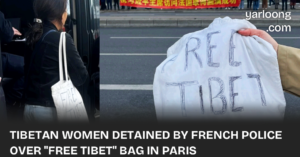
To boost investment in Tibet, Chinese authorities have introduced an attractive deal for potential investors: move your family to Tibet, invest 3 million yuan (about US$415,000), and your children will get a better shot at entering top universities. This news, shared by RFA, has sparked a mix of reactions on social media and among educational experts.
Every year, millions of Chinese students endure the tough “gaokao” exams to enter universities. The score needed for admission varies across China‘s provinces, with Tibet offering one of the lowest thresholds due to policies favoring ethnic Tibetans. Frank Lehberger, from the Usanas Foundation, points out the significant score difference needed in Tibet versus Beijing, drawing attention to the policy aimed at helping Tibetan students.
However, the new incentive from Tibet‘s Education Department, aimed at drawing investment amid economic downturns, has raised concerns. While the move is officially to promote the region’s economy and improve the business environment, critics argue it could disadvantage local Tibetan students and potentially alter the balance of educational opportunities.
ALSO READ: Hundreds of Tibetans Released from Dam Protests, Two Leaders Still Held
Critics, including Bhuchung Tsering from the International Campaign for Tibet, warn that this could lead to the exploitation of policies meant to support Tibetans, as wealthier families from other regions could take spots in universities that would have gone to local students.
Despite these concerns, Xiong Bingqi of the 21st Century Education Research Institute defends the policy’s stringent requirements, arguing it targets those genuinely interested in contributing to Tibet‘s long-term development. Meanwhile, a Chinese Embassy official praised Tibet‘s educational system and economic growth, claiming all ethnic groups enjoy equal access to quality education.
This policy has ignited debate about the balance between attracting investment and ensuring fair educational opportunities for Tibet‘s native population. Critics argue it reflects deeper issues within Tibet‘s development strategy under Chinese governance.






